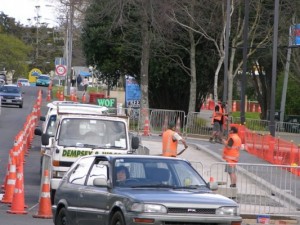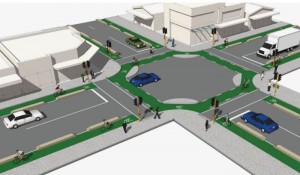
Following on from the tragic death of a cyclist in Auckland, we have seen the normal, ill-informed vitriol that cyclists don’t belong on the road as they don’t pay for it. Hopefully most of you know that roads (as opposed to motorways) are paid for in NZ out of rates and general taxation, so this argument actually has no factual basis. In addition, the main cost for local roads is in maintenance and cycles cause very little or no damage to roads (most damage is actually caused by trucks, BTW).
This article from Todd Litman of the Victoria Transport Policy Institute addresses some arguments often made by cycling critics against investing in cycling infrastructure. Todd Litman calls these arguments myths or more charitably, half truths.
One of the most commonly raised arguments/myths is that cyclists do not pay for roads while motorists do. This article reveals that in the United States the vast majority of states do not pay for the vast majority of roading costs through user fees (direct taxes and tolls). The situation in NZ is slightly different as can be seen in this blog post on the Cycling in Christchurch blog but the basic principle holds true – local roads are mostly paid for out of general taxation and rates which we all pay.

As the Dutch know (but apparently not NZ), humans make mistakes, so when they do the roading system should follow the Dutch model and be designed so mistakes are not fatal. Right now staying alive on our roads, whether as a cyclist, pedestrian, car driver or truck driver, depends on no-one making a mistake – not a great assumption when humans are involved. For cyclists, this means separated cycleways.
It may also mean that trucks such as ran over Jane Bishop and the cyclist on Tuesday, need to be fitted with under-run protection (deflection devices which make it much less likely for a cyclist or pedestrian hitting / beng hit by a truck to actually go under the wheels). They are not mandatory in New Zealand, even though they are a rather simple change.
It would be really nice to see a debate in NZ that is informed and fact driven. Where the debate goes is a matter for democracy to sort out but it should at least occur in an environment where the facts are known and understood by opponents as well as advocates.



